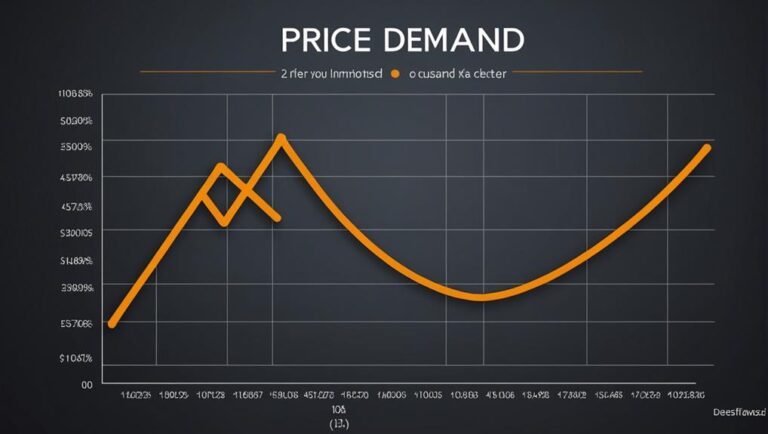Freelancers: The Independent Work Revolution
The independent work revolution has transformed the freelance landscape, offering flexibility and autonomy. Remote opportunities and the gig economy have driven this shift, allowing freelancers to set their schedules. With an increasing demand for specialized skills, freelancers contribute greatly to the job market and shape evolving work preferences. However, challenges like isolation and financial instability exist. Looking ahead, remote work is on the rise, digital nomads are influencing the landscape, and technology integration is increasing. This revolution continues to redefine traditional work structures, providing unprecedented opportunities for those seeking independence.
Key Takeaways
- Independent work arrangements are increasing globally.
- Remote opportunities are driving the shift to freelancing.
- Freelancers enjoy flexibility in setting their schedules.
- Specialized skills meet the rising demand in the gig economy.
- Freelancers shape evolving work preferences and structures.
Evolution of Freelancing Trends
The evolution of freelancing trends reveals a dynamic shift in the modern workforce landscape towards independent work arrangements. Remote opportunities have played a significant role in driving this transformation, allowing freelancers to work from anywhere in the world.
The rise of the gig economy has also been instrumental, providing a plethora of short-term and flexible job opportunities for individuals seeking autonomy in their work. This shift towards independent work arrangements has empowered freelancers to set their own schedules, choose projects that align with their interests, and enjoy a greater work-life balance.
As more companies embrace remote work and project-based hiring, the freelancing trend is expected to continue its upward trajectory, offering both professionals and businesses new avenues for collaboration and growth.
Key Factors Driving Freelancer Growth
Amidst a rapidly evolving workforce landscape, an array of key factors are propelling the exponential growth of independent freelancers in today's economy.
The rise of remote work opportunities has been a significant driver, enabling individuals to work from anywhere and access a global pool of clients. Digital nomads, a subset of freelancers who embrace a location-independent lifestyle, contribute to this growth by showcasing the feasibility and benefits of working remotely.
This trend aligns with the increasing demand for specialized skills that freelancers often possess, allowing businesses to tap into niche expertise without the constraints of traditional employment.
As the gig economy expands, more professionals are opting for freelancing to enjoy flexibility, autonomy, and diverse project opportunities.
Impact of Freelancers on Economy
Within the dynamic landscape of the modern economy, freelancers exert a substantial influence on various economic facets through their independent work practices. Their economic contribution is significant, shaping workforce dynamics and job market trends.
Freelancers act as an innovation catalyst, bringing fresh ideas and specialized skills to industries. They contribute to job creation by fulfilling specific project needs for businesses, driving flexibility in hiring practices. Additionally, freelancers often pioneer new working models, influencing how traditional companies structure their workforce.
This shift towards independent work not only impacts individual freelancers but also has broader implications for the overall economy, reflecting evolving preferences in how work is organized and executed.
Challenges Faced by Independent Workers
Freelancers traversing the modern economic landscape encounter a myriad of challenges in their quest for independent success and sustainability. One significant challenge is the isolation that independent workers often experience. Working alone for extended periods can lead to feelings of loneliness and disconnection from a supportive team environment. This isolation can impact motivation and mental well-being, highlighting the importance of finding ways to stay connected with peers.
Additionally, financial instability is a common concern for freelancers. Inconsistent income streams and the absence of traditional job benefits like healthcare coverage or retirement plans contribute to this instability. Freelancers must navigate these challenges by implementing strategies for maintaining social connections and creating financial stability through budgeting and diversifying their client base.
Future of Freelancing Landscape
The evolving landscape of independent work presents a dynamic shift in how professionals engage with their careers and adapt to changing economic structures. With the rise of remote work and the emergence of digital nomads, freelancing is undergoing significant transformations. Professionals are now seeking more flexibility in their work schedules, allowing them to work from anywhere in the world. This shift towards remote work has opened up opportunities for individuals to travel while continuing their careers, blurring the lines between work and lifestyle. The table below highlights key aspects of the future freelancing landscape:
| Future of Freelancing Landscape | ||
|---|---|---|
| Remote Work | Digital Nomads | Work Flexibility |
| Increased Independence | Global Talent Pool | Technology Integration |
| Diverse Work Opportunities | Flexibility in Hours | Networking Challenges |
Conclusion
In the intricate tapestry of the modern workforce, freelancers stand as the vibrant threads weaving flexibility, autonomy, and challenges into the fabric of independent work.
As the gears of the economy turn, these independent workers navigate the ebbs and flows of irregular income streams and the absence of traditional job security.
The future of freelancing gleams like a constellation in the night sky, promising new opportunities and challenges on the horizon.







